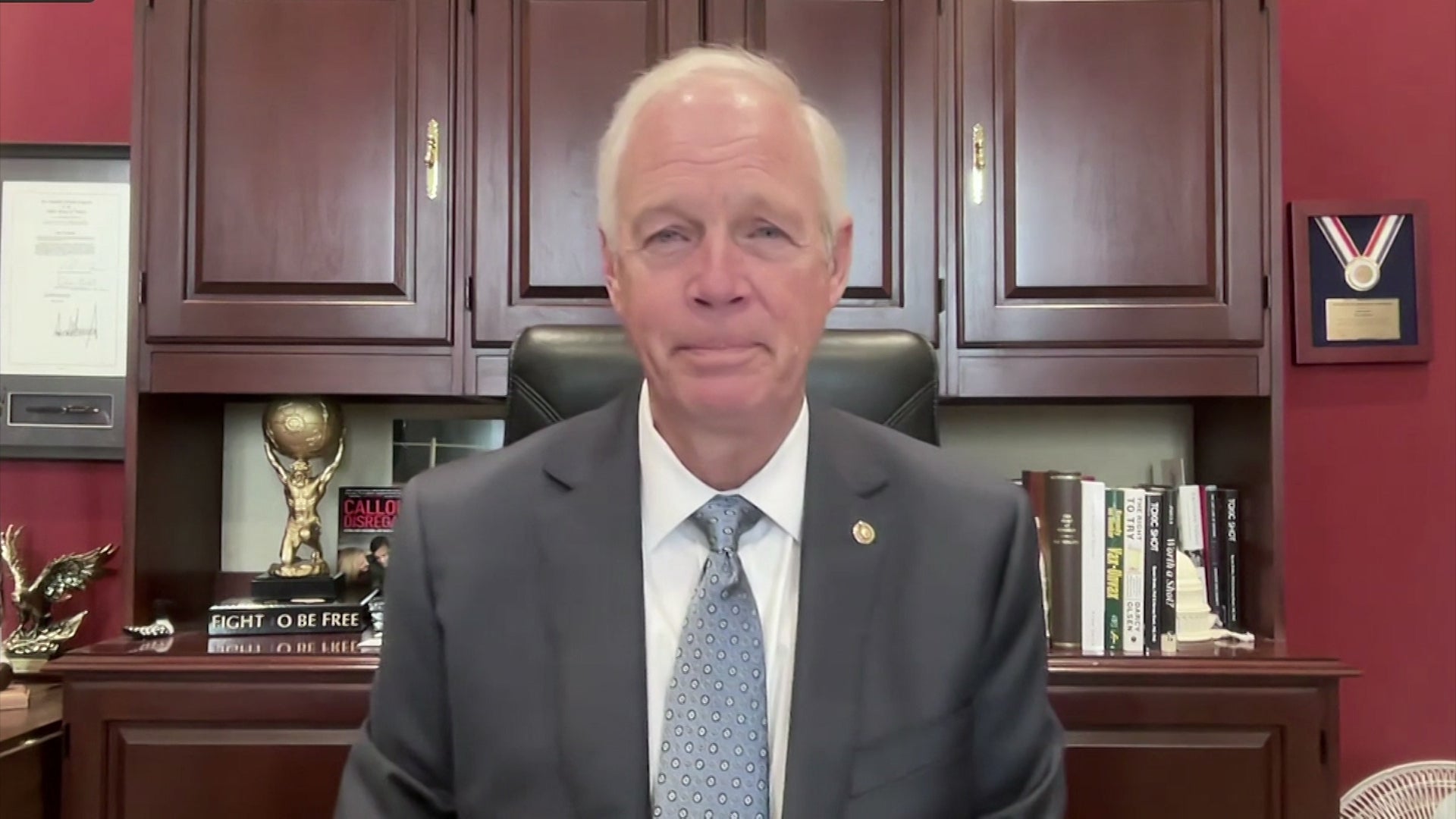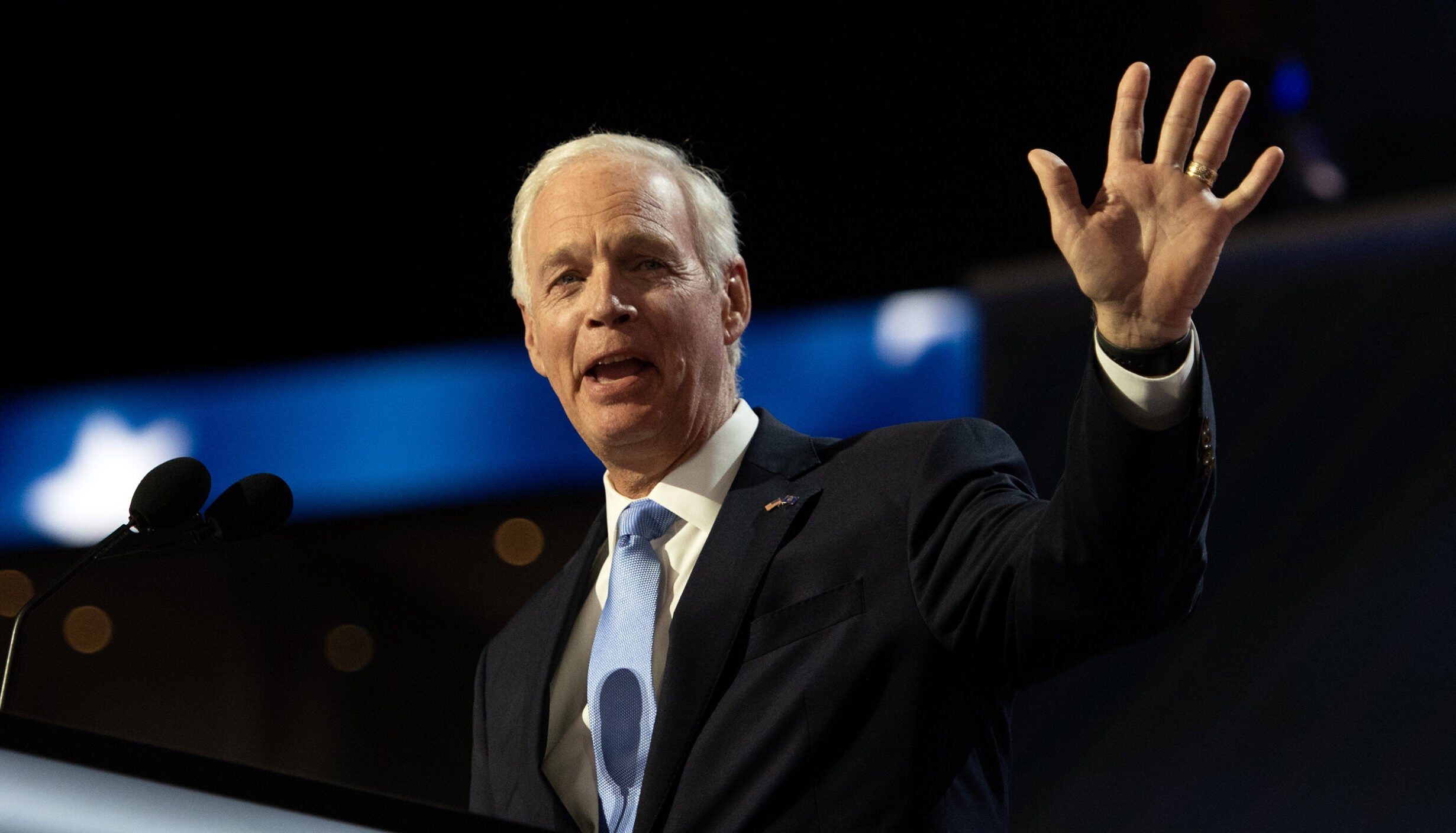Wisconsin Republican U.S. Sen. Ron Johnson wants to pump the brakes on pushing through President Donald Trump’s “big, beautiful bill” by July 4 to address concerns about adding trillions to the nation’s deficit.
Senate Republicans introduced their version of the bill Monday that includes more significant cuts to Medicaid in the form of new work requirements to help extend Trump’s $4.5 trillion tax cuts. The proposal would also provide more time to phase out clean energy tax credits than the U.S. House version, which would’ve ended incentives almost immediately.
Johnson told CNBC Tuesday that progress has been made on the bill as GOP lawmakers seek to boost border security and defense spending. But Wisconsin’s Republican senator stressed that more time is needed to address the nation’s debt, which is approaching $37 trillion.
“This is unprecedented what we’ve done in terms of increasing spending, so our reaction, our response, should be unprecedented as well,” Johnson said. “It shouldn’t be impossible. It should be entirely doable and eminently reasonable.”
Johnson has been one of the most outspoken critics on the bill. The Senate version includes many provisions of the House legislation. Even so, the proposal’s changes to Medicaid, clean energy tax credits and state and local taxes are likely to complicate its passage when the Senate version returns to the House. House Republicans previously passed its bill by a one-vote margin.
Compared to the House bill, the Senate version would expand Medicaid work requirements for parents with kids over 14 years old, requiring them to work or volunteer 80 hours a month. Wisconsin’s Medicaid director has already said around 63,000 childless adults could lose coverage under the House proposal.
The Senate bill would also lower a cap on how much states can tax health care providers from 6 percent to 3.5 percent in the Senate proposal, reducing funds available to states for Medicaid.
Johnson highlighted that the Congressional Budget Office, or CBO, has estimated that the House bill would increase the national deficit by about $2.4 trillion over the next decade, saying not nearly enough is being done to reduce spending to pre-pandemic levels.
He said he wants to force Congress and the Trump administration to deal with growing deficits.
“I don’t even want to contemplate this, but just maybe we ought to try and pay for it. Maybe we shouldn’t keep cutting taxes, and maybe (we’ve) got to increase taxes on everybody,” Johnson told CNBC. “I think it’s a stupid thing to do. I would just vote to extend current tax law.”
Johnson and Republicans like Sen. Rand Paul, R-Kentucky, have criticized increasing the debt ceiling. The Senate bill would raise the debt ceiling even further by $5 trillion rather than $4 trillion under the House proposal.

Wisconsin U.S. Sen. Tammy Baldwin, a Democrat, also opposes Republican proposals. She’s concerned about deep cuts to Medicaid and food assistance for Wisconsinites.
She pointed to an analysis that estimates more than 250,000 Wisconsin residents could lose health coverage under Medicaid and the Affordable Care Act. Baldwin has also noted that 90,000 residents may lose food assistance under $314 million in cuts Wisconsin would see under the House bill.
“The Senate Republicans’ bill makes even deeper cuts to programs like Medicaid, will kick more hardworking parents, veterans, and kids off their health care, balloon the deficit, and take food away from hungry families – all to rig our already unfair tax code to help big corporations and the rich. No, thanks,” Baldwin said in a statement.
“Working families across Wisconsin just want a shot at success, a job that pays the bills, health care they can afford, and a tax system that rewards hard work – and that’s exactly what I’ll be fighting for as I push back against this extreme and harmful bill,” Baldwin continued.
The Senate bill would keep the current $10,000 deduction for state and local taxes compared to a $40,000 cap that was supported by Republicans in the House bill. It also lowers the child tax credit from $2,500 in the House bill to $2,200.
The Senate version provides more time to phase out clean energy tax credits that were made available under the Inflation Reduction Act. Tax credits for electric vehicles and homeowners installing rooftop solar would end within six months of the bill’s passage, and companies would see reduced tax breaks for wind and solar facilities each year before they’re eliminated in 2028.
The most recent CBO analysis estimates 10.9 million Americans could lose health coverage under the House bill by 2034, including 5.2 million people who could lose health care under Medicaid.
Johnson said he’s confident that a group of Republican senators will delay a vote on the bill until at least the August recess.
News with a little more humanity
WPR’s “Wisconsin Today” newsletter keeps you connected to the state you love without feeling overwhelmed. No paywall. No agenda. No corporate filter.
Wisconsin Public Radio, © Copyright 2026, Board of Regents of the University of Wisconsin System and Wisconsin Educational Communications Board.





